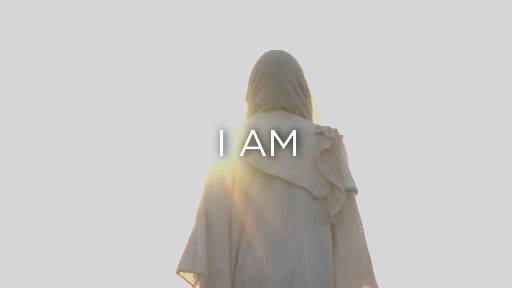-
A Song For The Journey
Contributed by Christopher Holdsworth on Sep 26, 2020 (message contributor)
Summary: The pilgrimage of life may - or even must - lead by the way of the Cross: but the destination is assured.
A SONG FOR THE JOURNEY.
Psalm 121.
This is a “song of ascent” - quite possibly sung by pilgrims on their way up to Jerusalem for one of the festivals. It would be an appropriate Psalm for returning exiles, too, when faced with the dangers of a thousand mile journey back across the wilderness from Babylon. There is danger here: and there is hope.
Psalm 121:1 seems to be a question. Perhaps the cantor “looks to the hills” and envisages the dangers that may lurk there. It is all too easy to focus upon the wild animals, landslides, and bandits in our walk with God.
There is also the danger posed by the idolatry of the ‘high places’ - which was part of the cause of the exile in the first place. Will I “lift up my eyes to the hills,” as if they were going to help me? “Where will my help come from?”
There is danger, too, if we are looking to our destination, as if that is the source of our help. Will pilgrimages help me, going up to Mount Zion, or even ‘going to church’? Going to church is to be commended, of course, for it is often the place where we meet God - but it is not an end in itself.
In Psalm 121:2 he answers himself: “My help comes from the LORD, who made heaven and earth.” Our God is not a god of the hills, or a god of the valleys (1 Kings 20:28). He is the Creator of all.
Then the choir/ congregation/ fellow travellers join in, speaking in the third person throughout the rest of the Psalm. We each have our own individual race to run, the course that the Lord Himself has set before us (Hebrews 12:1). Yet it is well to remember that we are not alone.
Others - also with their own races to run - are there with us: fellow-travellers in the way. Even as we strengthen ourselves in the Lord, there are others to help uphold our arms (Exodus 17:12), adding their ‘Amen’ to our prayers. ‘So lift up the arms that hang down, and the feeble knees; and make straight paths for your feet’ (Hebrews 12:12-13).
The LORD is introduced as the One who will keep our feet from slipping (Psalm 121:3). A human parent will hold the hand of their toddling infant, and though the child may stumble, yet the strong hand of the adult will take swift action to prevent grazed knees and consequent tears. In a wonderful benediction towards the end of the New Testament, the ‘only wise God our Saviour’ is again acknowledged as the One who is ‘able to keep you from falling’ (Jude 24-25).
There is poetic repetition of words in today’s Psalm:
1. He who “keeps” you (Psalm 121:3),
also “keeps” Israel (Psalm 121:4).
He is your “keeper” (Psalm 121:5).
He “keeps” (preserves) you from all evil;
He will “keep” (preserve) your life, your very soul (Psalm 121:7).
The LORD “will keep” (shall preserve) your going out and in (Psalm 121:8).
2. He is “the LORD” (Yahweh) your keeper;
“the LORD” your shade (Psalm 121:5).
He is “the LORD” who will keep you;
“the LORD” who will keep your life (Psalm 121:7);
“the LORD” who will keep your going out and coming in (Psalm 121:8).
3. He who keeps you will not “slumber” (Psalm 121:3);
He will neither “slumber” nor sleep (Psalm 121:4).
This puts me in mind of Elijah’s taunt of the Baal prophets at Mount Carmel: ‘Cry aloud… perhaps he is sleeping, and needs to be awoken” (1 Kings 18:27). The true and living God, the God and Father of our Lord Jesus Christ, “neither slumbers nor sleeps.”
The idea of the LORD as our “shade” (Psalm 121:5) arises because of the dangers of sunstroke, or of being moonstruck (Psalm 121:6). The LORD protects us from physical ailments, but also from all kinds of psychological and downright demonic oppression. The New Testament speaks of ‘those oppressed by the moon’ (Matthew 4:24; Matthew 17:15), which is correctly translated ‘lunatic’ in the older English versions of the Bible.
The fact of the matter is that the LORD protects us from “all” evil, or evil in all its kinds (Psalm 121:7). The LORD will keep (shall preserve) our lives, our very souls: our innermost being. Nothing ‘shall be able to separate us from the love of God, which is in Christ Jesus our Lord’ (Romans 8:38-39).
This is a Psalm for the journey, for the pilgrimage of life. It may - or even must - lead by the way of the Cross (Matthew 16:24): but the destination is assured. The LORD preserves all our ways: not only now, but forever (Psalm 121:8).

 Sermon Central
Sermon Central


